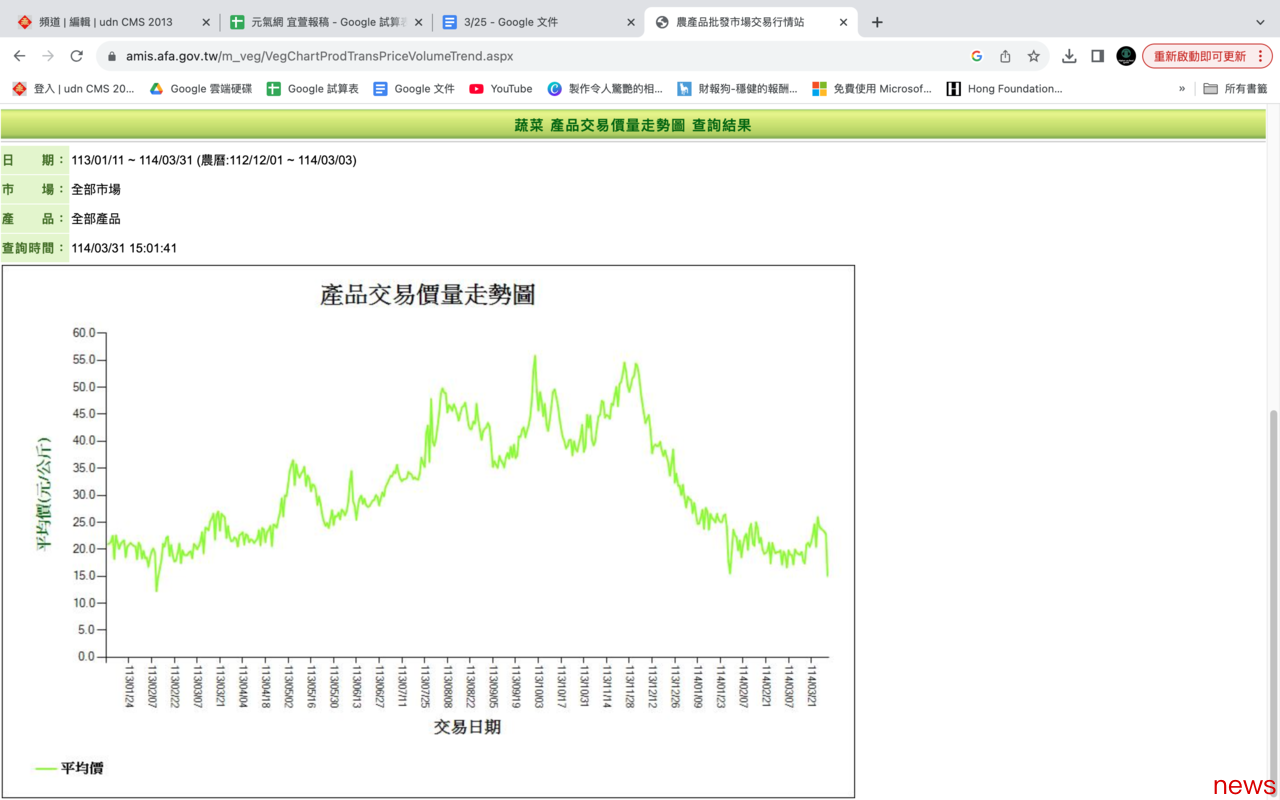
In this era of price growth, the public was more chewy about daily sales, and often damaged the tendons between the ingredients and the purse. The Japanese financial website Financial Field discusses whether to use cheaper health products instead of eating vegetables, comparing the advantages and disadvantages of the two.
Which is more cost-effective, nutritional supplement or vegetables?The website states Japanese government data and recommends that the daily intake of vegetables be 350 grams, while the average price per kilogram of vegetables is 316 days (about NT$70). After counting, a person needs to spend 3,318 yen (about NT$735) per month to buy vegetables.
If you don't buy vegetables at all, you can save about 70 NT$ per month by buying 3,000 NT$ (about NT$664) of nutrients.
The prices of vegetables in Taiwan are not inferior. The data from the wholesale market of agricultural products show that from January last year to March this year, the highest price of one kilogram is 5 or 60 pieces. Each person needs to spend at least 500 pieces per month to buy vegetables. This makes people start to think about it. It seems that buying comprehensive health products is more cost-effective, and it can also save the effort of cooking.

Although commercially available comprehensive vitamins also contain nutrients, the natural and rich vitamins, minerals and dietary fibers in vegetables are difficult to compare with artificial health products.
Replacing the consumption of large amounts of vegetables with supplementary health products can cause risks to your health. For example, taking multiple products at the same time may cause excessive amounts of the same ingredients, or if you are taking medicine, be careful to interact with health products.
People should regard health care products as a "replenishment role" and only eat them in the absence of nutritional balance on weekdays. At the same time, they should not ignore the use of vegetables.
{twenty one} {twenty two}
How to save money when buying vegetables?When we encounter expensive food, we can buy cheap vegetables in small steps, such as finding a way to buy directly with farmers, including farm shops, vegetable markets, fruit and vegetable wholesale stations, etc., and we can also pay more attention to whether there are vegetables that are being cleaned and promoted, and vegetables are usually more cost-effective during the season.
When food prices rise due to poor weather, pre-cut vegetables may be cheaper. In addition, cold vegetables are also one of the options for stable sales.
